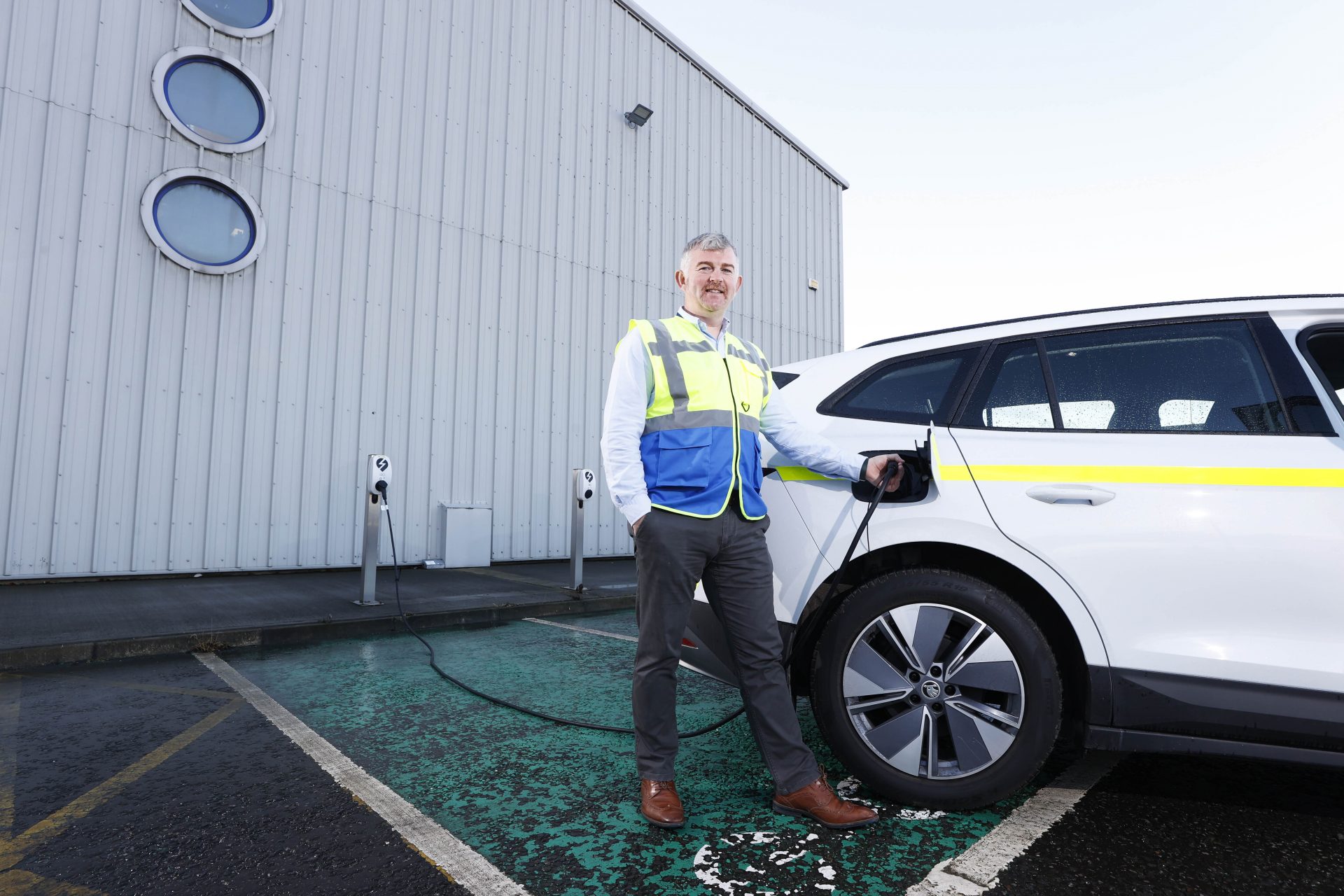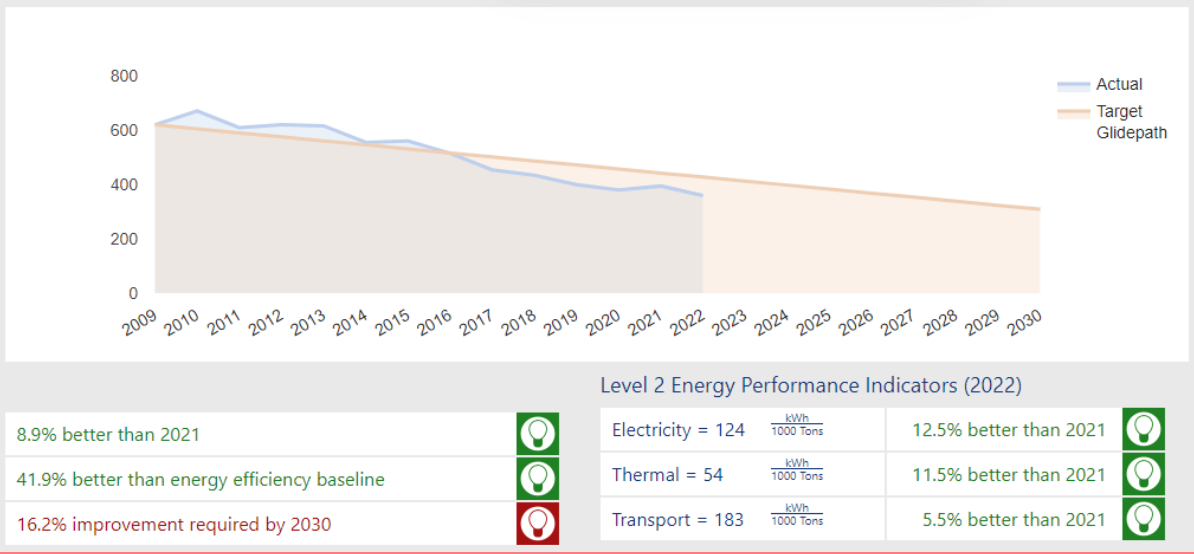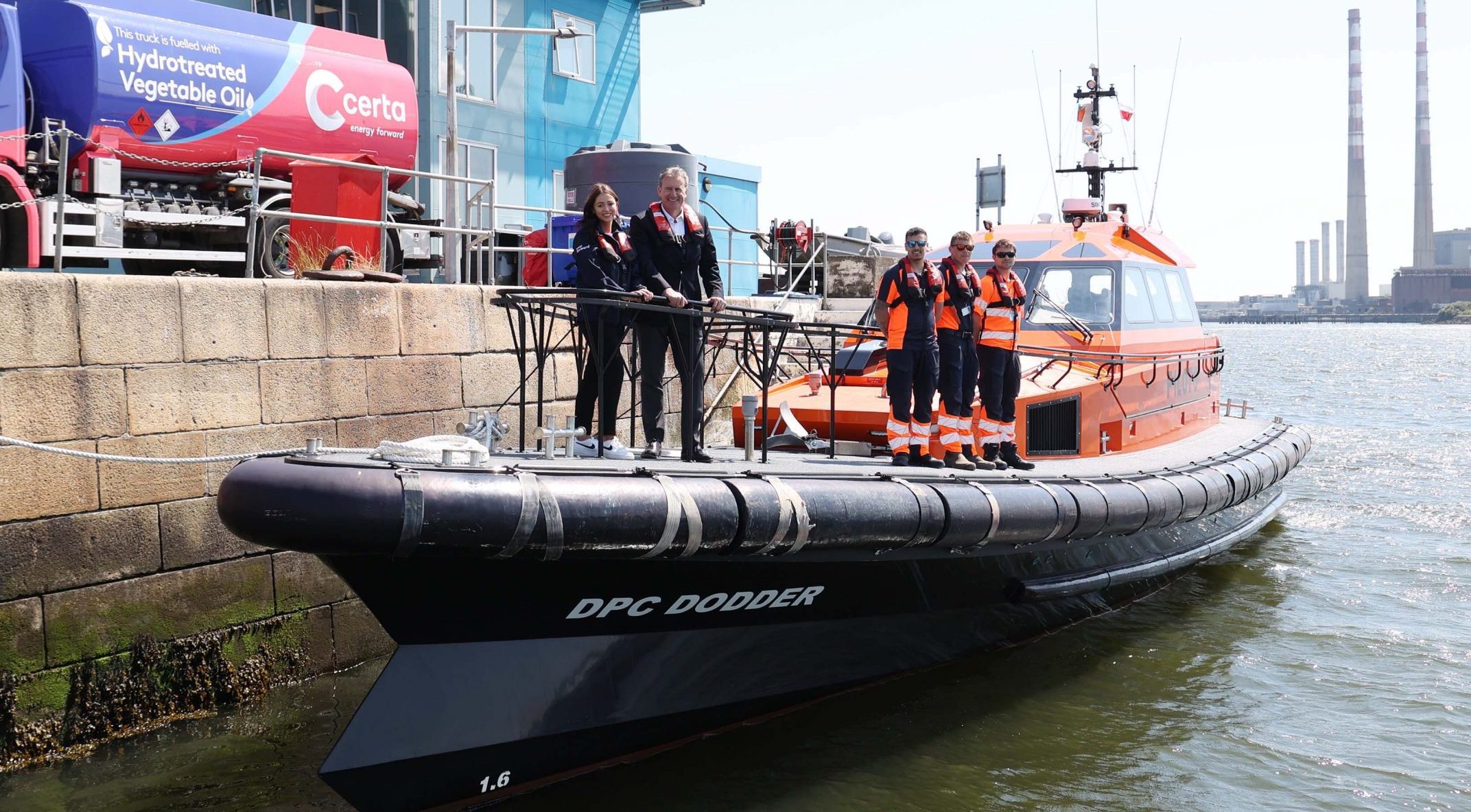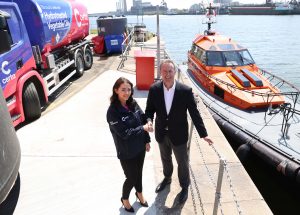As a commercial semi state company, Dublin Port Company recognises the importance of improving energy efficiency and reducing greenhouse gas emissions. Dublin Port is committed to achieving net zero by 2050, meeting all mandatory public sector targets and playing our part to ensure Ireland reaches its sustainability goals, as set out in the national Climate Action Plan.

Energy & Decarbonisation Objective Overview
Dublin Port are continuously working towards reaching energy and decarbonisation targets and in doing so, have introduced the following initiatives to date:
- Continuous energy optimisation of operational assets
- Use of shore side electricity for our Pilotage & Towage services at berth
- Installation of a 11kW wind turbine in Terminal 1
- Certified to the ISO50001 International Energy Management Standard since Feb 2017
- Changing all high mast lighting (HML’s) within the Port estate to LED.
- Installation of 204kWp of solar PV on the roof of the Maintenance & Services building
- Converted Pilotage services marine vessels from marine gas oil (MGO) to hydrotreated vegetable oil (HVO)
- Commenced the roll out of replacing our diesel light goods road fleet with battery electric vehicles (BEV)
Energy Performance
The below glidepath outlines Dublin Port’s continued improvement in energy performance since 2009, as reported annually through the SEAI Monitoring & Reporting (M&R) System:
Through the SEAI’s Gap to Target Tool, we have identified several future strategic initiatives that will assist us in meeting our Public Sector Energy & Decarbonisation Targets:
- Building Energy Improvement Projects
- Further utilisation of bio/renewable fuels
- Continuation of the roll out of battery electric vehicles (BEV) to replace our light goods road fleet
Energy Performance Graph

Hydrotreated Vegetable Oil (HVO)
An alternative fuel source
Pilotage services at Dublin Port involve the provision of highly skilled pilots and marine operatives with local marine knowledge to guide and advise incoming and outgoing ships on issues such as navigation, tides, port infrastructure and shipping movements in Dublin Port. Pilot boats travel up to 10 nautical miles offshore to safely deliver a Dublin Port Pilot to or from a ship and therefore the pilot boats are considered safety critical equipment and must have high reliability.
In April 2023 Dublin Port Company (DPC) commenced a trial to explore the potential to utilise Hydrotreated Vegetable Oil (HVO) as a replacement for Marine Gasoil (MGO) fuel, for the pilot boats. The key advantages of this fuel are:
- HVO is made from certified 100% waste vegetable oils and animal fats and offers up to a 90% reduction in net CO2 emissions. HVO has also been observed to reduce soot particle emissions, NOx, SOx and unburnt hydrocarbons.
- HVO is a fossil-free paraffinic diesel, meaning it can be used as a direct replacement for mineral diesel fuel and as a result should require no modifications to engines, assuming engine compatibility.
- To meet greenhouse gas emission reduction targets by 2030, a transition fuel, such as HVO, offers the best solution to assist in achieving 2030 targets.
Based on the outputs from the trial a transition to HVO will contribute to an overall CO2 emissions reduction of 437 tonnes per annum or 11% of Dublin Port’s CO2 emissions.

Contact Info
For any energy or decarbonisation, queries please email energyteam@dublinport.ie
PERS Certificate
Download DocumentISO 50001 Cert
Download DocumentSEAI Public Sector Partnership Certificate
Download DocumentEnergy Policy
Download Document


